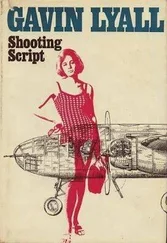Gavin Lyall - Blame The Dead
Здесь есть возможность читать онлайн «Gavin Lyall - Blame The Dead» весь текст электронной книги совершенно бесплатно (целиком полную версию без сокращений). В некоторых случаях можно слушать аудио, скачать через торрент в формате fb2 и присутствует краткое содержание. Жанр: Триллер, на английском языке. Описание произведения, (предисловие) а так же отзывы посетителей доступны на портале библиотеки ЛибКат.
- Название:Blame The Dead
- Автор:
- Жанр:
- Год:неизвестен
- ISBN:нет данных
- Рейтинг книги:4 / 5. Голосов: 1
-
Избранное:Добавить в избранное
- Отзывы:
-
Ваша оценка:
- 80
- 1
- 2
- 3
- 4
- 5
Blame The Dead: краткое содержание, описание и аннотация
Предлагаем к чтению аннотацию, описание, краткое содержание или предисловие (зависит от того, что написал сам автор книги «Blame The Dead»). Если вы не нашли необходимую информацию о книге — напишите в комментариях, мы постараемся отыскать её.
Blame The Dead — читать онлайн бесплатно полную книгу (весь текст) целиком
Ниже представлен текст книги, разбитый по страницам. Система сохранения места последней прочитанной страницы, позволяет с удобством читать онлайн бесплатно книгу «Blame The Dead», без необходимости каждый раз заново искать на чём Вы остановились. Поставьте закладку, и сможете в любой момент перейти на страницу, на которой закончили чтение.
Интервал:
Закладка:
Nine
I let the next day get started at its own pace. When I reckoned the working world had got into gear, I did a round of telephoning: my answering service (nothing worth while), Oscar (expected back this afternoon), and a couple of clients just to reassure them that I was still around and in business (neither of them actually told me to get lost).
At about eleven o'clock I arrived at Fenwick's flat. It was on the second floor of one of those buildings built in the 1920s with rounded corners and metal-framed windows with lots of tiny panes; the best of German modernism and Elizabethan tradition combined.The flat-door lock was a simple Yale without even a reinforcing strap, so I could have slipped it myself in a few seconds. But the key was my proof of respectability: an old family friend picking up some things for David, in case anybody asked.
It was a simple two-bedroom, one-living-room, kitchenette-off-the-tiny-hallway layout; the rooms weren't either big or small, but a bit higher than they'd build these days. I shut the outside door quietly and just sat down to try and absorb the feel of the place.
After a few minutes I gave that up; either I couldn't do it or it didn't work in this flat. The furniture was just furniture; not old or new, not cheap or pricy. Just comfortable. The only 'personality piece' was a small, round antique table, but you can't get a modern table that size and height anyway. There was a double bed in one room, a single in the other; built-in cupboards instead of wardrobes. No paintings on the walls -just a print of an old-style Admiralty chart and a couple of nice photographs of clippers under full sail.
So then I started to work the place over properly. Well, not properly: if you were on a real job – say an espionage case where you're up against professionals at hiding things – you'd take a team of men and spend a week on a flat that size. But I did what I could.
What interested me most was a smallish bureau-style desk, a reproduction of a style that had never existed outside Hollywood. It was locked, of course, but I thought that might be a problem that would solve itself if I left it long enough. It did: there was a duplicate key, along with one for a car and several for doors (at Kingscutt?) in an old tea-caddy at the back of the kitchen cupboard. Another reason why burglars are such traditionalists.
By then I'd learned that Fenwick hadn't been much of a cook, that he liked reasonably expensive, sober clothes, changed his shirts and pants a lot – anyway, he had twice as many as I owned, and presumably more down at Kingscutt -and kept everything neat and tidy. Using that description, pick this man out of a crowd.
There hadn't been any signs of Miss Mackwood – or any woman. And women usually manage to leave something around a place where they've got an emotional stake. Like a dog pissing up against lamp-posts and trees to mark out his territory. Not conclusive, of course (though it told me Mrs Fenwick never stayed there), but something.
Oh yes, and one other thing: somebody else had searched the flat recently.
There were only small signs, and maybe only somebody with a suspicious mind would have spotted them. A stack of clean sheets had been taken from the top shelf in the cupboard and put back too far, so that they were a bit crumpled; the trousers of a couple of suits hung slightly wrong; the bedside table lamp was moved so it didn't quite fit the dust pattern.
Mockby's boys? If so, he'd found himself new boys. This lot had been professionals, though not quite top class. The Yard? -no. They'd've done it properly, with a warrant and one of the family or Oscar in attendance, and they wouldn't have worried about leaving traces. Still, they'd do it sooner or later andthey might spot traces; I put the sheets, trousers and the lamp back in parade order.
So then I tried the bureau. I'd stopped being very hopeful about that; my predecessors would certainly have gone through it, and if Fenwick had been keeping a Dear Diary confessing All, then it wasn't likely to be there any more. The worst thing was I wouldn'tknow if there'd been a diary or anything; the place had stopped being a picture of Fenwick because somebody else might have taken, rearranged, even added something. Hell's teeth – why hadn't I thought of him having a second place before, and come around and t»rned it over myself first?
Still, I did the bureau. It was as well organised as I expected – household bills, bank statements, income-tax returns and the jungle of paperwork that clings to any solid citizen like the ivy on the old garden wall. 'Dear Sir, with reference to your heating problems our engineering report suggests that the fault may lie in the ventilation system to the ultra-sub-dinglefoozit which indicates the need for a prefrontal lobotomy and if you send us ten quid now we'll come round at the most inconvenient time and louse up your flat for twenty-four hours or infinitely whichever shall be the longer…'
I grinned. At least Fenwick had had his small problems, too, like the rest of us. But those aren't the ones that get solved with a nine-millimetre pistol.
No strictly private stuff at all except a packet of photos of David taken maybe a year ago. And no letters or bills from private detectives, either. That didn't prove anything, of course, because you often don't want a detective to put anything in writing, and they often don't want to be paid by cheque; simplifies their tax problems.
So? So now it was one o'clock. I filed the bank statements and duplicate tax returns in the inside pocket of my raincoat and walked out into the rain with the brave, sad smile of any disappointed burglar.
First thing after lunch, I went around to a local woman who runs a small secretarial service. It took a little time to persuade her that I wanted to run her photo-copying machine by myself, and I may have given her the impression that I was protecting the private life of a cabinet minister, but I finally got it. By half past two the tax returns and bank statements were back in Fenwick's bureau and I was sitting on the hotel bed with the copies.
The bank statements might have sung like a sonnet to another computer, but to me they wouldn't mean a thing until I knew exactly what I was looking for. So I started on the tax returns. He'd given the Kingscutt address, allowances claim for wife, one Lois Linda Fenwick… children, David James born such-and-such. I opened the form and got down to the meat.
It was thin on the bone. After a quarter, of an hour I had a simple picture of Fenwick's financial life and times over the past three years. He'd had a basic salary of £4,500 plus a little less than £500 in unearned income, which, at a guess, meant he'd got about ten or twelve thousand in shares. His wife had started off with about the same amount of share capital in her own name, but had sold maybe two or three thousand about a year ago.
Each year also had the note: 'Underwriting profits – to be agreed.' Well, I knew that Lloyd's doesn't let you take a profit until three years late: they keep it in the kitty in case of late claims. But I also knew that, for the years involved, he was as likely to have taken a loss as a profit. Lloyd's came a crunch with Hurricane Betsy in 1965 and stayed crunched for three years.
No mention of mortgage payments, but out of his total income of £5,000-odd, he was stumping up nearly a thousand a year in life insurance. I suppose that if you're in insurance you must believe in it, but this was ridiculous. His death would have cost the companies over thirty thousand quid – well over.
Maybe it had been Mrs Lois Linda Fenwick behind that pillar with a nine-millimetre.
That reminded me, and I rang Oscar. Yes, he'd just got back but he's very busy, no, even if it is about the trip, oh, it's you, is it? Well, I suppose, all tight.
Читать дальшеИнтервал:
Закладка:
Похожие книги на «Blame The Dead»
Представляем Вашему вниманию похожие книги на «Blame The Dead» списком для выбора. Мы отобрали схожую по названию и смыслу литературу в надежде предоставить читателям больше вариантов отыскать новые, интересные, ещё непрочитанные произведения.
Обсуждение, отзывы о книге «Blame The Dead» и просто собственные мнения читателей. Оставьте ваши комментарии, напишите, что Вы думаете о произведении, его смысле или главных героях. Укажите что конкретно понравилось, а что нет, и почему Вы так считаете.











